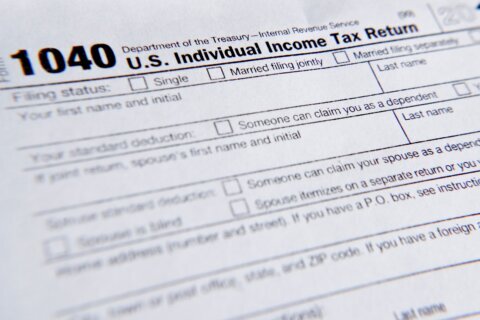The American Civil Liberties Union Foundation of Northern California has filed a civil complaint on behalf of an Apple employee who was detained by US Customs and Border Protection.
Andreas Gal, who wrote a Medium post about his experience, was detained at San Francisco International Airport on November 29, according to the complaint. The US citizen was returning from a business trip to Europe when he says he was interrogated and asked to unlock his employer-issued smartphone and laptop for inspection. Gal, concerned about violating non-disclosure agreements he’d signed with Apple, asked to consult with either his employer or an attorney.
The complaint says that at that point the CBP officers “retaliated” by telling Gal he was “committing a federal crime” and revoking his Global Entry status. Global Entry is a program offered by CBP that pre-approves low-risk travelers and gives them expedited clearance to enter the United States. Members of the paid service enter the United States using automatic kiosks at select airports. (Gal used the kiosk initially but was directed to speak with a customs officer.)
Gal told CNN Business that they did not gain entry to his devices.
The complaint, filed with the Department of Homeland Security’s Office for Civil Rights and Civil Liberties, asks for an investigation into whether CBP’s interrogation and search violated Gal’s First and Fourth Amendment rights. It also wants a review of CBP’s policies to see if they violate the US Constitution and laws.
The Department of Homeland Security, which oversees CBP, declined to comment on pending litigation.
Gal told CNN Business that he reached out to the ACLU after the incident because he was unsure of his rights and wanted clarity about what was legal.
“When I was denied the right to an attorney, I was wondering, ‘Do they have the right to do this? To accuse me of a crime and deny me of an attorney?'” he said.
“I’ve left the US probably a hundred times for work. I have no idea what caused me to be pulled over. I have traveled all my life and have never been asked more than, ‘What’s your name?’ ‘Where are you coming from?'”
Gal said the only thing he’s changed recently is become more publicly outspoken against the Trump administration.
Gal said he was also repeatedly asked about the work he did as chief technology officer for his previous employer, Mozilla, a company committed to open technology and online privacy.
Apple and Mozilla did not immediately respond to a request for comment.
A statement put out by the ACLU of Northern California describes Gal as an “outspoken proponent of online privacy, an opponent of warrantless mass surveillance, and a strong opponent of the current administration’s policies.”
William Freeman, senior counsel at the ACLU of Northern California, said in a statement that “CBP’s policies lack protections for First Amendment rights by allowing interrogation and device searches that may be based on a traveler’s political beliefs, activism, nation of origin, or identity.”
The amount of information contained on electronic devices is another area of concern. Jacob Snow, a staff attorney at the ACLU of Northern California, said “border patrol agents should not be able to access this data without a search warrant.”
Gal said the incident was “very intimidating” and that he was questioned by three customs officials, who were wearing bulletproof vests and were armed.
“I want to know if I was targeted for my political viewpoints,” he said. “I’m not a fearful person, but it’s quite terrifying to go across the border now.”
Gal said he now has lawyers on call when he reenters the country and checks in with someone when going through customs.
“I’m a super boring, middle-aged, middle class, white tech executive,” he said. “One of the reasons to do this publicly is to show that anyone can be subject to this.”







